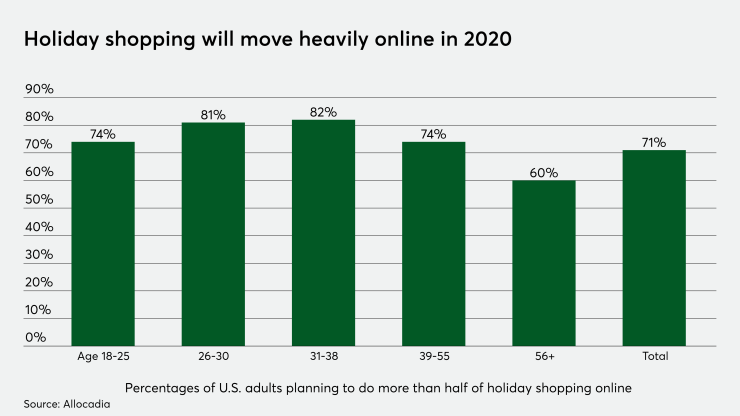Online fraud typically spikes when holiday shopping begins in November, but so-called friendly fraud poses another big threat this year with the pandemic pushing more consumers — and inexperienced merchants — to online sales channels.
Friendly fraud occurs when a consumer demands the reversal of a purchase they made online but don’t recognize, triggering chargebacks with merchandise losses and time-consuming negotiations between banks and merchants.
With coronavirus driving a mass migration to online shopping, friendly fraud is already suspected to be higher than last year. The payments fraud-monitoring company Kount is responding with unprecedented steps on the eve of the fourth-quarter shopping frenzy.
Kount last month hired longtime fraud-prevention consultant Scott Adams as the Boise, Idaho, company’s first-ever vice president of friendly fraud, and the firm also unveiled a new partnership with Verifi, Visa’s dispute-resolution service, to help block excess chargebacks in near-real time.

“This year consumers are buying a lot more items online through unfamiliar channels and many times they don’t recognize these charges, triggering lots of chargebacks,” Adams said. Adams co-founded FraudPVP, which supplies fraud management tools to Visa.
In addition to rising friendly fraud, “coronavirus killed off a lot of brick-and-mortar shopping, and some merchants looking to recoup their losses are going online for the first time, without realizing how much friendly fraud is mixed in with traditional third-party online fraud,” Adams said.
Friendly fraud creates chaos because 90% of consumers who don’t recognize a purchase they made online typically make their first call to the card issuer, which usually has no immediate insight into shopping cart or transaction details, according to Kount's research.
By integrating with Verifi, Kount's detailed fraud-detection filters combine with Verifi’s insight into merchants' transaction data to quickly determine whether a consumer actually made a purchase, in many cases short-circuiting the chargeback process.
"With friendly fraud, it's often consumer confusion where they don't recall making that purchase or it was someone else in the household," Adams said.
Merchants opting in to Verifi's service will benefit from Kount's vast trove of data to determine which purchases are legitimate.
“Kount sits in the middle, letting merchants collaborate with the card issuer through Verifi, so the bank can provide the consumer with details helping them to recognize a transaction they actually made,” Adams said.
The process produces results in as little as two seconds, but Kount recommends that to be fully effective merchants share full shopping cart information to give a complete picture of each customer’s purchases.
“In the past, it was difficult for smaller merchants to use these tools, but if a merchant has signed up with Kount, now it’s plug and play,” Adams said.
The speed with which Verifi and Kount can pin down Visa transaction details can also save merchants money in the middle of a disputed transaction, he said.
“Previously it could take two or three days for merchants to get notification of a chargeback, by which time merchandise was already on the way to a consumer who claimed they didn’t make the purchase,” Adams said.
Under the new approach, if the bank determines the transaction is in fact a chargeback, Kount can convey that message to the merchant and immediately stop shipment, particularly in the case of video games and digital goods consumers claim they didn’t order, according to Adams.
The Kount-Verifi collaboration builds on Kount’s existing tools to block all types of fraud, using AI and advanced analytics, continually enriching Kount’s data about shoppers to block routine fraud, according to Adams.
Visa
Mastercard earlier this year announced





